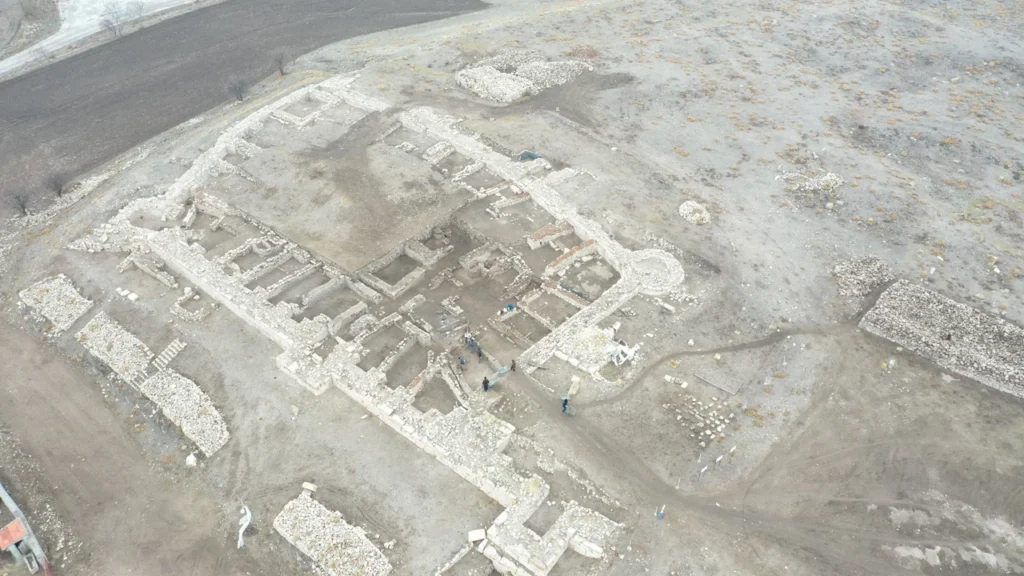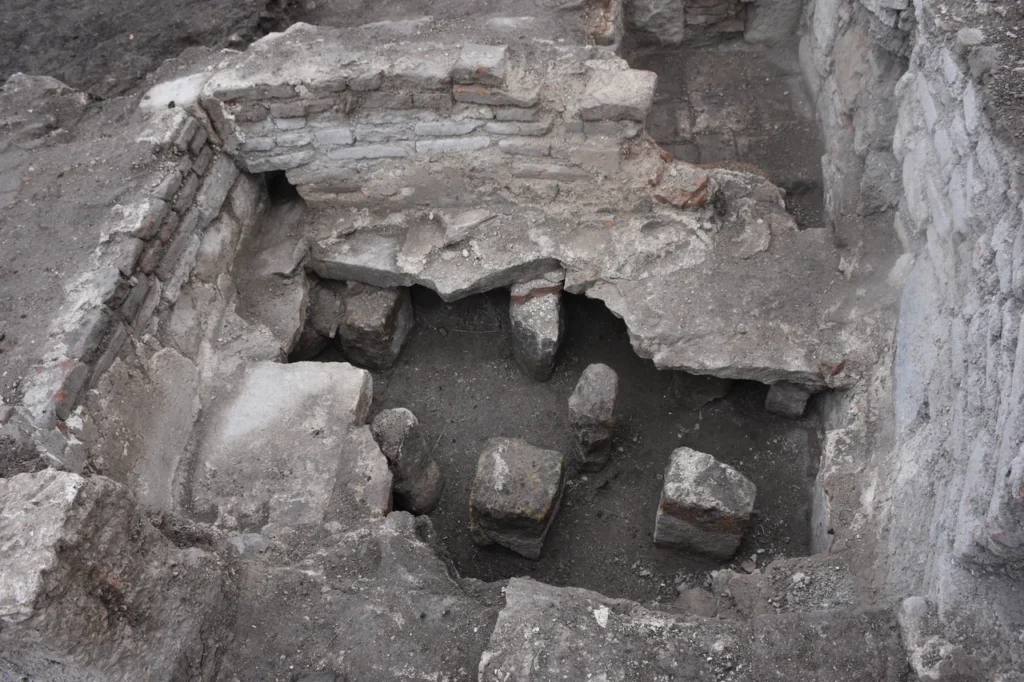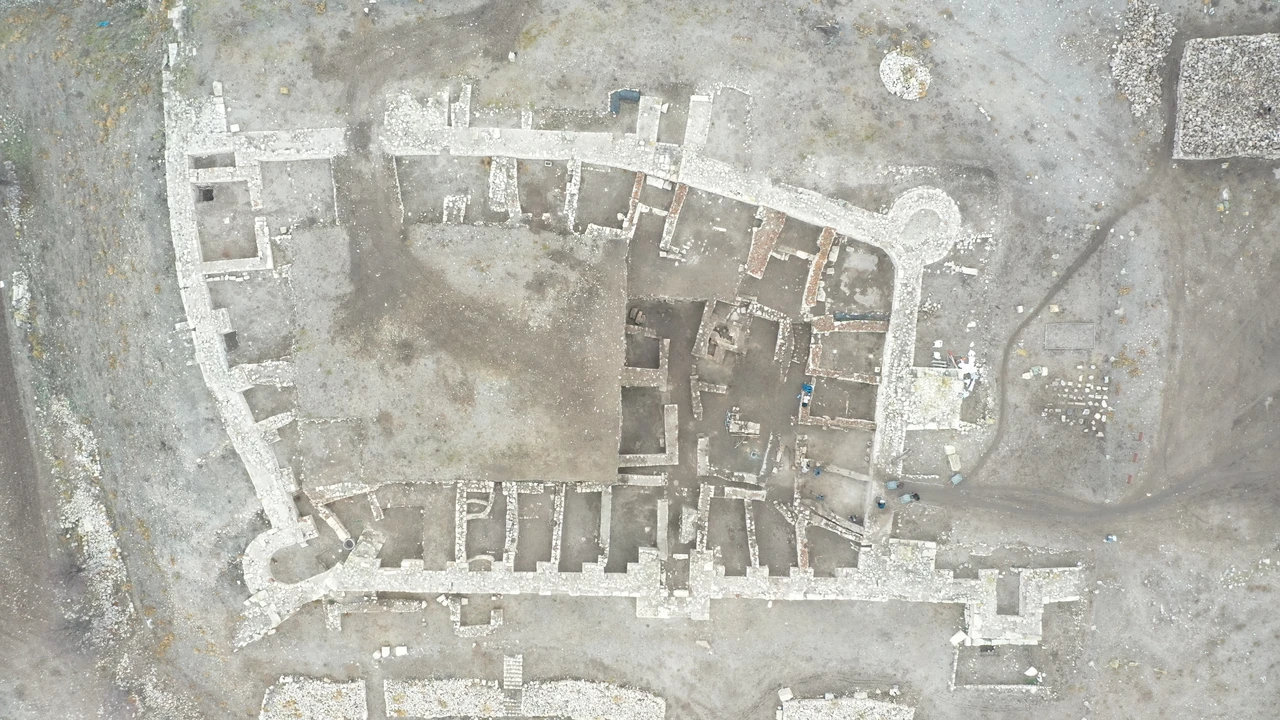In the ongoing archaeological excavations at the 4,000-year-old Amorium Ancient City, located near the Emirdağ district of Afyonkarahisar in western Türkiye, a bath from the Turkish-Islamic period has been discovered.
The excavations are being conducted in collaboration with the Ministry of Culture and Tourism and Anadolu University (AÜ), under the leadership of Prof. Dr. Zeliha Demirel Gökalp.
So far, the excavations at the mound of Amorium, referred to as the “Lower City” and “Upper City,” have uncovered a large church, a basilica, a Byzantine bath, grape pressing pools, coins dating back to the Seljuk and Ottoman periods, a ceramic kiln, a grain storage facility, as well as numerous other artifacts.

The work has focused on the “inner wall” section of the Upper City, which is believed to have been constructed during the Byzantine period.

Excavation leader Prof. Dr. Zeliha Demirel Gökalp stated, “Despite it being winter, the excavations are still ongoing. We have determined that there was significant settlement in the inner wall during the Seljuk and Beylik periods. One of the most important findings of this year is the discovery of a bath belonging to the Turkish-Islamic settlement. It is a largely preserved bath, situated above the foundation level. Although the covering system has collapsed, we have been able to read the bath typology. In other words, we are very pleased to have found a rectangular-planned small bath that includes a külhan (smoking area), cehennemlik (hot room), sıcaklık (warm room), and ılıklık (tepidarium).”
The excavation team plans to fully uncover the inner wall.



